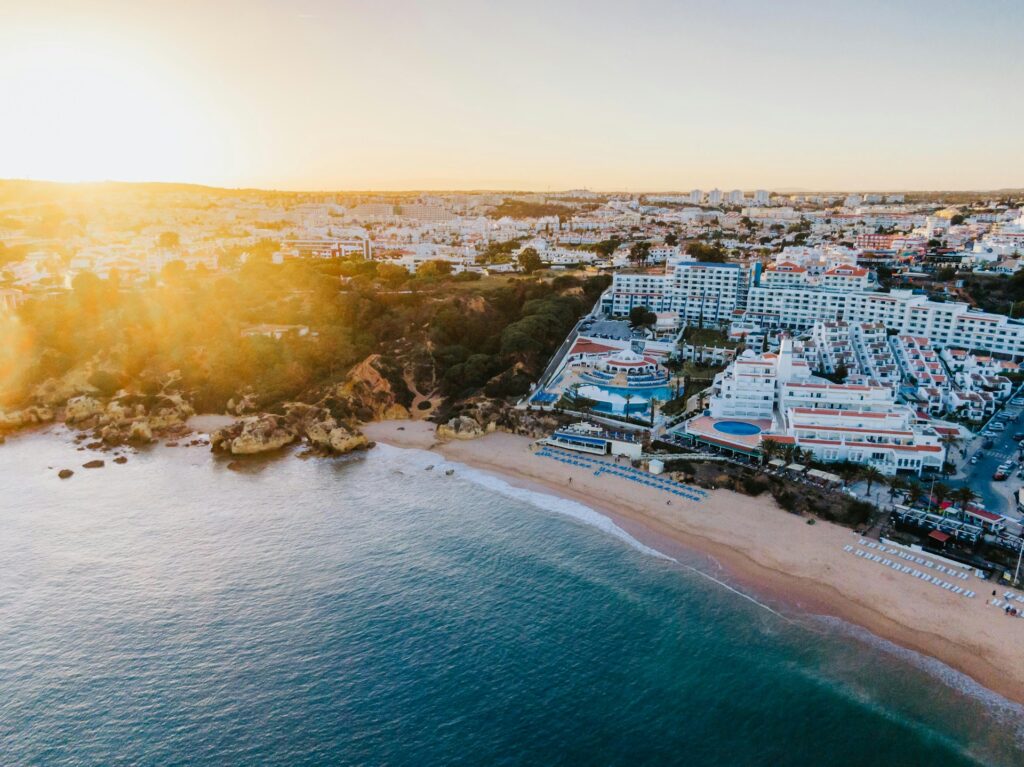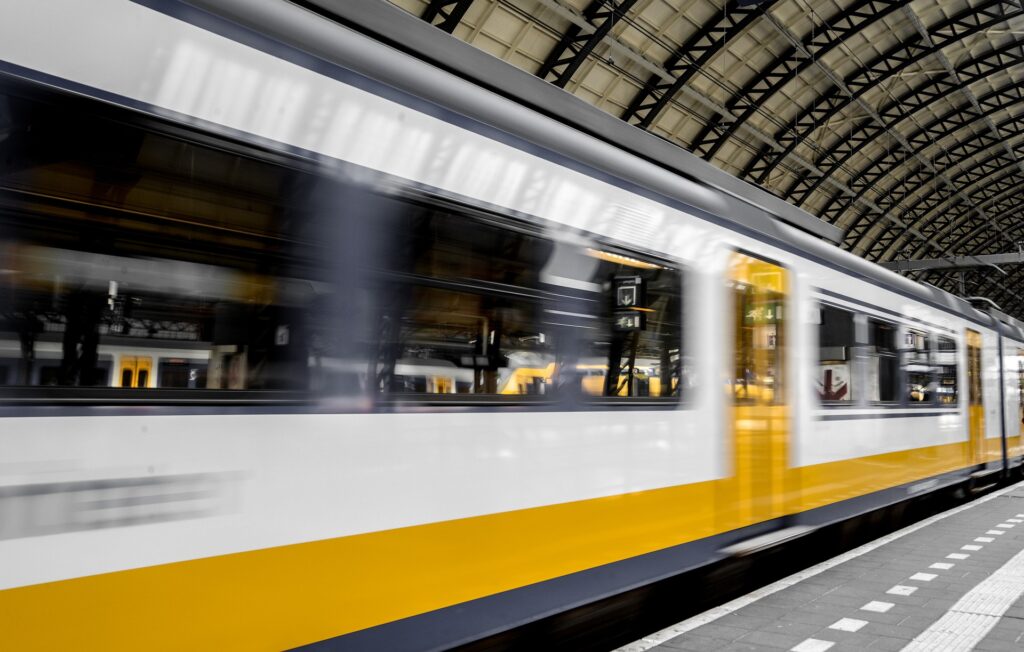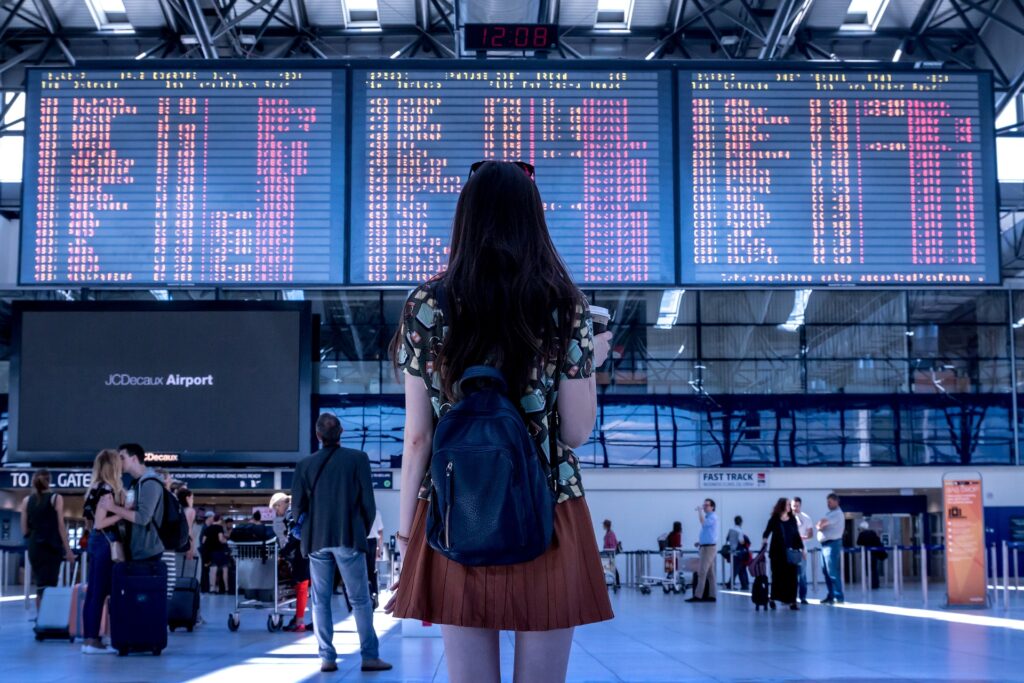With rents 25% cheaper than in Lisbon, the cost of living in Algarve is Europe’s best-kept secret.
Portugal has always been a great place of attraction for immigrants regarding affordability. The Algarve, located in the south of Portugal, has also been a center of attention for tourists because of its affordability.
According to Statista, in 2023, Algarve received almost 1.4 million domestic travelers. This suggests the affordable cost of living in Algarve. If you are planning on moving to Portugal, you might want to consider living in Algarve.
In this article, we will discuss the detailed breakdown of the cost of living in Algarve, Portugal. So, keep that notepad ready to start planning your budget.

The Algarve Pros & Cons
The Algarve offers a mix of benefits and challenges for those considering a move. Here’s a quick look at the pros and cons across key areas like cost, lifestyle, and infrastructure.
Housing Costs in the Algarve
Let’s talk about housing costs. They’re a huge chunk of what people spend just to live. According to Numbeo, property prices in the Algarve hit €3,513 per square meter as of 2025. Not exactly cheap, right? But it’s still a solid pick for investors.
Why?
Well, rentals here cost about €14.6 per square meter each month. Crunch the numbers, and that’s close to 5% returns yearly.
Now, compare that to Lisbon. Prices there? A steep €3,799 per square meter. Porto’s a bit friendlier at €2,418, but neither stacks up to the Algarve’s combo of decent prices and lifestyle perks. Think beaches, tourists flocking in year-round, and that laid-back vibe you don’t get in big cities.
Forget the idea that the Algarve is all luxury villas. Sure, those exist, but towns like Loulé or Silves? They’re way more affordable. You can snag a cozy apartment without breaking the bank. Perfect for folks who want the Algarve lifestyle but aren’t rolling in cash.
Utilities and Internet Expenses
For anyone researching the cost of living in Algarve, utilities and internet expenses often come as a pleasant surprise.
Take a standard 85m² apartment: basics like electricity, water, and garbage services hover around €120 per month, though this can rise to €150 if you’re running AC nonstop during those scorching summer months. It’s one of those costs that feels predictable until, say, a heatwave hits, then you’ll notice the difference.
Internet plans here are another win. For €37 a month, you’ll get 60 Mbps or higher speeds, unlimited data, and sometimes even basic cable.
Mobile plans? Even cheaper. A typical package with 10GB of data and unlimited calls costs €17 monthly, less than half what you’d pay in cities like Paris or Amsterdam.
And coverage? It’s reliable almost everywhere, even in smaller towns. Remote workers praise the Algarve’s connectivity, especially in spots like Lagos or Faro, where cafes often double as coworking spaces.
However, how these numbers add up defines the cost of living in Algarve. Unlike Lisbon, where rents dominate budgets, the Algarve balances moderate utility costs with seasonal flexibility.
Winters are mild, so heating bills stay low, and providers like Vodafone often slash prices for bundled services. This combination of affordable basics, strong internet, and fewer surprises makes the region a practical pick for retirees or freelancers.

Food and Grocery Expenses
Okay, let’s get real about food prices. A cheap meal at a local joint cost €12.
But if you’re celebrating, a proper dinner for two (three courses, maybe some vinho verde) averages €40. It’s not bad for a coastal region, honestly. And yeah, McDonald’s fans, €8 gets you that McMeal combo.
Now, drinks. A pint of Sagres? €2.50. Imported beer? It’s the same price for a smaller bottle. A cappuccino’s €1.75 is quite affordable compared to other cities like Lisbon and Porto. But heads up: a tiny bottle of water costs €1.33 at restaurants. Grab the big 1.5L for €1 at Pingo Doce instead.
The cost of living in Algarve feels fair, especially regarding groceries. Milk is €0.95 a liter, and bread is €1.26. Eggs €2.48 a dozen, great for breakfasts. Chicken is €5.53/kg, but beef jumps to €11.71/kg (ouch).
Produce is where the Algarve shines. Tomatoes (€2.05/kg), potatoes (€1.29/kg), and lettuce (€0.85 a head) make salads cheap. Bananas? €1.15/kg, oranges at €1.26? Free compared to London. And wine! A decent bottle is €5, while supermarket beer’s €1.08 (local) or €2.65 (imported). €5.50 for Marlboros, which might be disappointing for frequent smokers.
Transportation Costs
Let’s talk transportation because the cost of living in Algarve isn’t just about rent and groceries. A single bus ticket? €3.00 flat, whether you’re hopping from Faro to Albufeira or just heading downtown.
However, the monthly passes are €37.00, which I’d call a steal if you commute daily. Taxis start at €3.30 the second you step in, then tack on €1.00 per kilometer. Waiting around? That’s €19.00 an hour, so maybe don’t ask the driver to linger while you shop at Mercado de Loulé.
Gas prices were €1.71 per liter last month. That’s not terrible, but it adds up if you’re driving a new Volkswagen Golf (€30,014.00) or Toyota Corolla (€34,256.00). Yeah, cars here aren’t cheap, but the roads are smooth. No potholes are ruining your suspension.

Healthcare Costs in Algarve
Portugal’s healthcare system is praised globally, but let’s cut to the chase: how does it affect the cost of living in Algarve? Public healthcare is free or nearly free for residents, and it is great for basics like checkups or prescriptions.
That’s why expats and retirees often go private. Insurance costs €50–€100 monthly, covering everything from dental work to emergencies. A routine doctor’s visit costs around €60, though cardiologists or orthopedists might charge double.
Private clinics, like Hospital Particular in Alvor or Lusíadas in Lagos, are popular. They have shorter waits and English-speaking staff.
Healthcare is a mixed bag for the cost of living in Algarve. Public care keeps budgets low, but private insurance adds up. Still, compared to the U.S. or UK, even €100/month feels like a bargain.
Leisure and Entertainment
Don’t skip the fun stuff when considering the cost of living in Algarve. A gym membership here costs €38 monthly, cheaper than Lisbon and way more scenic if your treadmill faces the ocean.
Catching a movie costs €10 for culture buffs, which feels fair. However, the outdoor enthusiasts get the best deal. Tennis fans, take note: club fees average €18/hour.
What makes the cost of living in Algarve unique is how leisure blends with daily life. You’re not just paying for a gym; you’re jogging coastal cliffs. That €10 concert ticket? It’s likely in a 16th-century castle courtyard. For retirees or remote workers, that balance of affordability and lifestyle is hard to beat.
Education Costs
When budgeting for the cost of living in Algarve, education is a key factor. Public schools are free, but expats often lean toward private options, especially if their kids don’t speak Portuguese.
Preschool alone averages €403.75 monthly for full-day care, while international primary schools like Nobel Algarve or Colégio Internacional de Vilamoura charge €10,800 annually per child.
Here’s the kicker: the cost of living in Algarve still appeals to families. Public colleges here charge under €1,500/year, and private healthcare (which expats often pair with schooling) stays manageable.
So yes, education adds to the budget, but compared to Lisbon or Porto, the Algarve’s blend of quality schools and sunny affordability keeps parents breathing easier.

Cost of Living in Algarve compared to Lisbon and Porto
Let’s see the cost of living in Algarve compared to Portugal’s hubs.
Let’s first take dining out: a budget meal in Lisbon costs €13, but in Faro, it’s €12. That mid-range dinner for two? €55 in Lisbon vs. €40 in the Algarve. Even your morning cappuccino is cheaper here (€1.75 vs. Lisbon’s €2.44).
Housing is where the gap widens. Want a 3-bed apartment outside Lisbon’s center? That’ll run you €1,767/month. In the Algarve, similar homes average €1,333, and you’re likely steps from a beach.
Buying property? Lisbon’s €5,674/m² in the city center crushes the Algarve’s €3,216/m². Hotspots like Lagos (€4,018/m²) undercut Cascais (€5,191/m²).
Groceries tell the same story. Milk (€0.95/L), chicken (€5.53/kg), and wine (€5/bottle) are cheaper here than in Lisbon or Porto. Need childcare? Preschools cost €403/month in the Algarve vs. €530 in Lisbon.
But the cost of living in Algarve also rivals that of quieter regions. Madeira’s Funchal charges €10.50 for a basic meal vs. the Algarve’s €12, but property yields here (up to 5.9% in Portimão) beat Calheta, Madeira’s 5.2%. Even Spain’s Costa del Sol can’t match Faro’s balance of €983/month rent and 5.1% rental yields.
Cost of Living in Algarve compared to US
If you are a US Citizen looking to relocate to Portugal, when comparing the cost of living between Faro, Portugal, and Washington, D.C., USA, Faro offers a significantly more affordable lifestyle. According to Numbeo, as of April 2025, the overall cost of living in Faro is approximately 55% lower than in Washington, D.C., excluding rent. When including rent, the difference increases to about 63% in favor of Faro.
Housing costs are a major factor in this disparity. Rent prices in Faro are about 73% lower than in Washington, D.C. For example, a one-bedroom apartment in Faro’s city center averages around €983 per month, whereas in Washington, D.C., the same apartment would cost approximately €2,511. This substantial difference in housing costs contributes significantly to the overall affordability of Faro.
Other everyday expenses also tend to be lower in Faro. Restaurant prices are about 58% less, and groceries are approximately 46% cheaper compared to Washington, D.C. However, it’s important to note that local purchasing power in Faro is 61% lower than in Washington, D.C., indicating that average salaries are also lower. Therefore, while expenses are reduced, income levels may also be comparatively less.
Cost of Living in Algarve compared to UK
When comparing the cost of living between Faro, Portugal, and London, UK, Faro offers a significantly more affordable lifestyle. According to Numbeo, as of April 2025, the overall cost of living in Faro is approximately 43% lower than in London, excluding rent. When including rent, the difference increases to about 51% in favor of Faro.
Housing costs are a major factor in this disparity. Rent prices in Faro are about 63% lower than in London. For example, a one-bedroom apartment in Faro’s city center averages around €983 per month, whereas in London, the same apartment would cost approximately €2,662.
Other everyday expenses also tend to be lower in Faro. Restaurant prices are about 42% less, and groceries are approximately 32% cheaper compared to London. However, it’s important to note that local purchasing power in Faro is 41% lower than in London, indicating that average salaries are also lower. Therefore, while expenses are reduced, income levels may also be comparatively less.

Visa and Immigration Options to Portugal
Portugal offers a range of visa options for individuals looking to relocate, whether for retirement, remote work, entrepreneurship, or investment. Here are the main types:
Portugal D7 Visa
The D7 Visa is perfect for retirees or individuals with passive income. To qualify, you need to show a minimum regular monthly income of around €870 and prove you can support yourself without employment in Portugal. It’s a great option for those looking to enjoy a relaxed lifestyle in a beautiful and welcoming country.
Portugal D8 Visa – Digital Nomad Visa
The D8, or Digital Nomad Visa, is designed for remote workers and freelancers earning at least €3,480 per month. It allows you to live in Portugal while working remotely for a non-Portuguese employer or managing your own business online. It’s ideal for digital professionals who want a European base with a great quality of life.
Portugal D2 Visa
The D2 Visa is for entrepreneurs and independent professionals who want to start or expand a business in Portugal. It offers a residence permit initially valid for up to two years, with the possibility of renewal. This visa suits anyone ready to invest in the Portuguese economy and build a future here.
Portugal Golden Visa
The Golden Visa, officially known as the Residence Permit for Investment Activity (ARI), offers residency through investment. While the rules have changed recently, popular options still include investing in qualified investment funds, supporting arts and culture, or scientific research. It’s an attractive route for those seeking residency and, eventually, citizenship, through economic contribution.
Portugal Residency Advisors® is our trusted partner in assisting individuals and families with their relocation process to Portugal. With expert guidance on residency options, investment opportunities, and legal procedures, they ensure a smooth and hassle-free transition.
Whether you’re considering Portugal for the Golden Visa, D7 Visa, or other residency programs, their team provides personalized support tailored to your needs.
Find Your Dream Property With Us
Portugal Investment Properties is your gateway to smart real estate investments in Portugal, offering savvy investors access to an exclusive collection of carefully curated properties.
Whether you’re searching for your dream home or a prime investment opportunity in Portugal’s prestigious market, we provide more than just listings – experience a personalized journey tailored to your aspirations.
Begin your journey to discover your perfect Portuguese retreat. Contact us today!
Looking to Invest in Portugal?
Explore our newest listings below!
Frequently Asked Questions About Cost of Living in Algarve in 2025
Can you live in Portugal for €1,000 a month?
€1,000/month in the Algarve is challenging but possible with strict budgeting. Opt for shared housing, limit dining out, and focus on affordable towns like Olhão (property: €2,871/m²). At this level, the cost of living in Algarve requires prioritizing essentials over luxuries.
Can you live in Portugal for €2,000 a month?
Yes, the cost of living in Algarve allows for a comfortable lifestyle of €2,000/month, covering rent, groceries, occasional dining, and leisure. Smaller towns like Silves or Tavira offer lower rents, stretching your budget further. This balance makes the region popular among retirees and remote workers.
Where is the cheapest place to live in the Algarve?
Olhão stands out with property prices at €2,871/m² and rents averaging €11.60/m². Its authentic fishing-village vibe and proximity to islands help minimize living costs in the Algarve. Budget-conscious expats often favor its balance of affordability and charm.
Cost of living in Portugal for a family of 4?
A family of four needs €2,500–€3,500/month in the Algarve for a 3-bed home, groceries, school fees, and activities. The cost of living in Algarve for families remains lower than in Lisbon.
Is the Algarve cheap to eat and drink?
Yes, local eateries serve meals under €10, beers cost €2–€3, and markets sell fresh produce like lettuce for €0.85/head, according to Idealista. The cost of living in Algarve for food is reasonable, though high-end dining exists for special occasions.
Is it expensive to live in the Algarve?
The Algarve is cheaper than Lisbon (rents: €1,333 vs. €1,767/month) and Western Europe but pricier than rural Portugal. The cost of living in Algarve balances coastal perks with mid-range expenses, appealing to those who value lifestyle over ultra-low costs.
How many foreigners live in the Algarve?
Nearly 100,000 expats (22.5% of residents) reside here, drawn by the cost of living in Algarve, safety, and climate. This dwarfs Portugal’s 5.7% national expat average, with retirees and remote workers forming large communities.
What is the quality of life in the Algarve?
The cost of living in the Algarve pairs with high quality, affordable healthcare (private insurance: €50–€100/month), fresh food, and relaxed coastal living. Safe towns, sunny weather, and expat networks make it ideal for families and retirees.
Is Portugal friendly to immigrants?
84% of expats praise Portugal’s safety, English fluency, and welcoming locals.
What is the Algarve famous for?
It’s known for its beaches, golf resorts, and expat communities. The cost of living in Algarve adds to its beauty, making it a desired place for expats.
